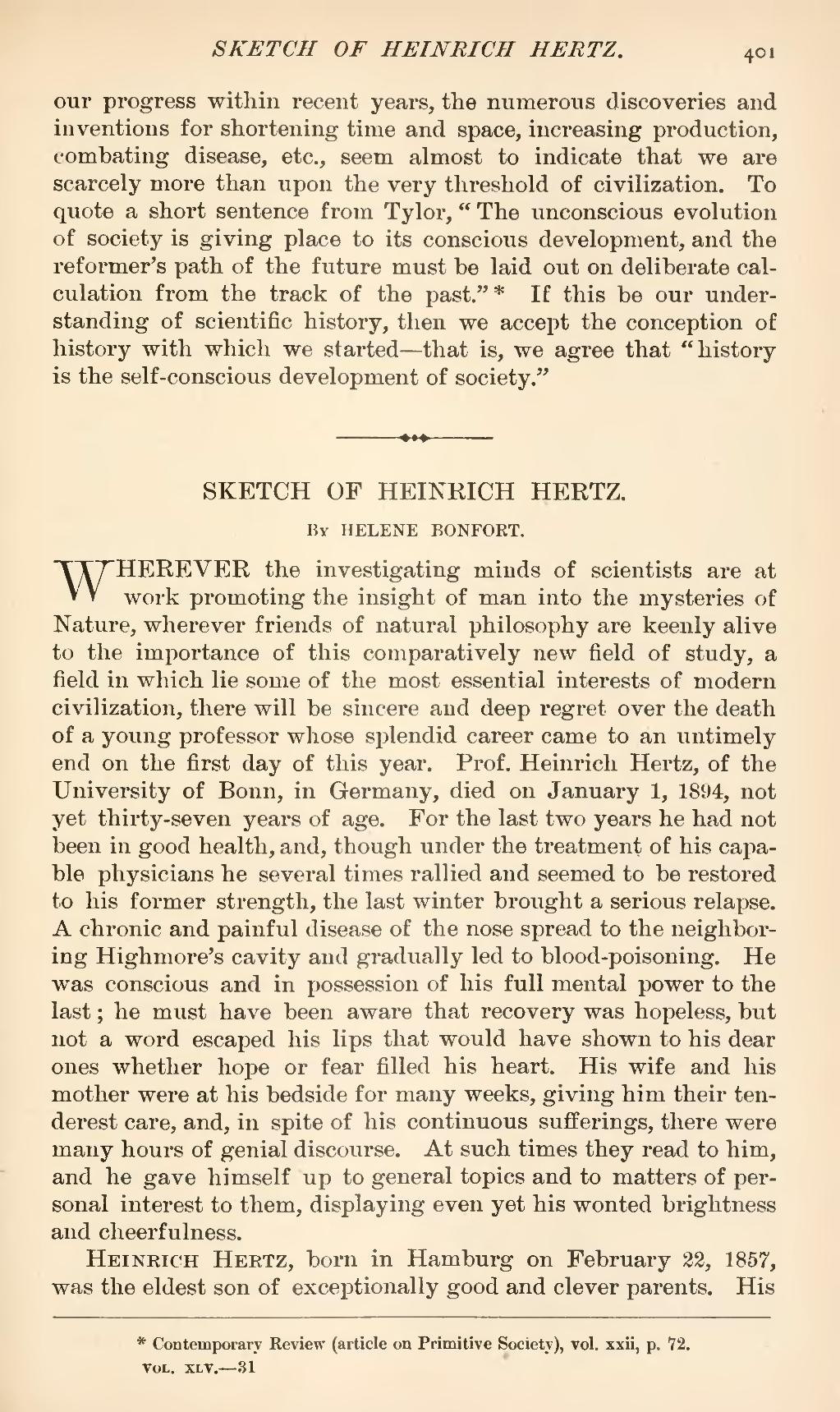our progress within recent years, the numerous discoveries and inventions for shortening time and space, increasing production, combating disease, etc., seem almost to indicate that we are scarcely more than upon the very threshold of civilization. To quote a short sentence from Tylor, "The unconscious evolution of society is giving place to its conscious development, and the reformer's path of the future must be laid out on deliberate calculation from the track of the past."[1] If this be our understanding of scientific history, then we accept the conception of history with which we started that is, we agree that "history is the self-conscious development of society."
| SKETCH OF HEINRICH HERTZ. |
By HELENE BONFORT.
WHEREVER the investigating minds of scientists are at work promoting the insight of man into the mysteries of Nature, wherever friends of natural philosophy are keenly alive to the importance of this comparatively new field of study, a field in which lie some of the most essential interests of modern civilization, there will be sincere and deep regret over the death of a young professor whose splendid career came to an untimely end on the first day of this year. Prof. Heinrich Hertz, of the University of Bonn, in Germany, died on January 1, 1894, not yet thirty-seven years of age. For the last two years he had not been in good health, and, though under the treatment of his capable physicians he several times rallied and seemed to be restored to his former strength, the last winter brought a serious relapse. A chronic and painful disease of the nose spread to the neighboring Highmore's cavity and gradually led to blood-poisoning. He was conscious and in possession of his full mental power to the last; he must have been aware that recovery was hopeless, but not a word escaped his lips that would have shown to his dear ones whether hope or fear filled his heart. His wife and his mother were at his bedside for many weeks, giving him their tenderest care, and, in spite of his continuous sufferings, there were many hours of genial discourse. At such times they read to him, and he gave himself up to general topics and to matters of personal interest to them, displaying even yet his wonted brightness and cheerfulness.
Heinrich Hertz, born in Hamburg on February 22, 1857, as the eldest son of exceptionally good and clever parents. His
- ↑ Contemporary Review (article on Primitive Society), vol. xxii, p. 72.
